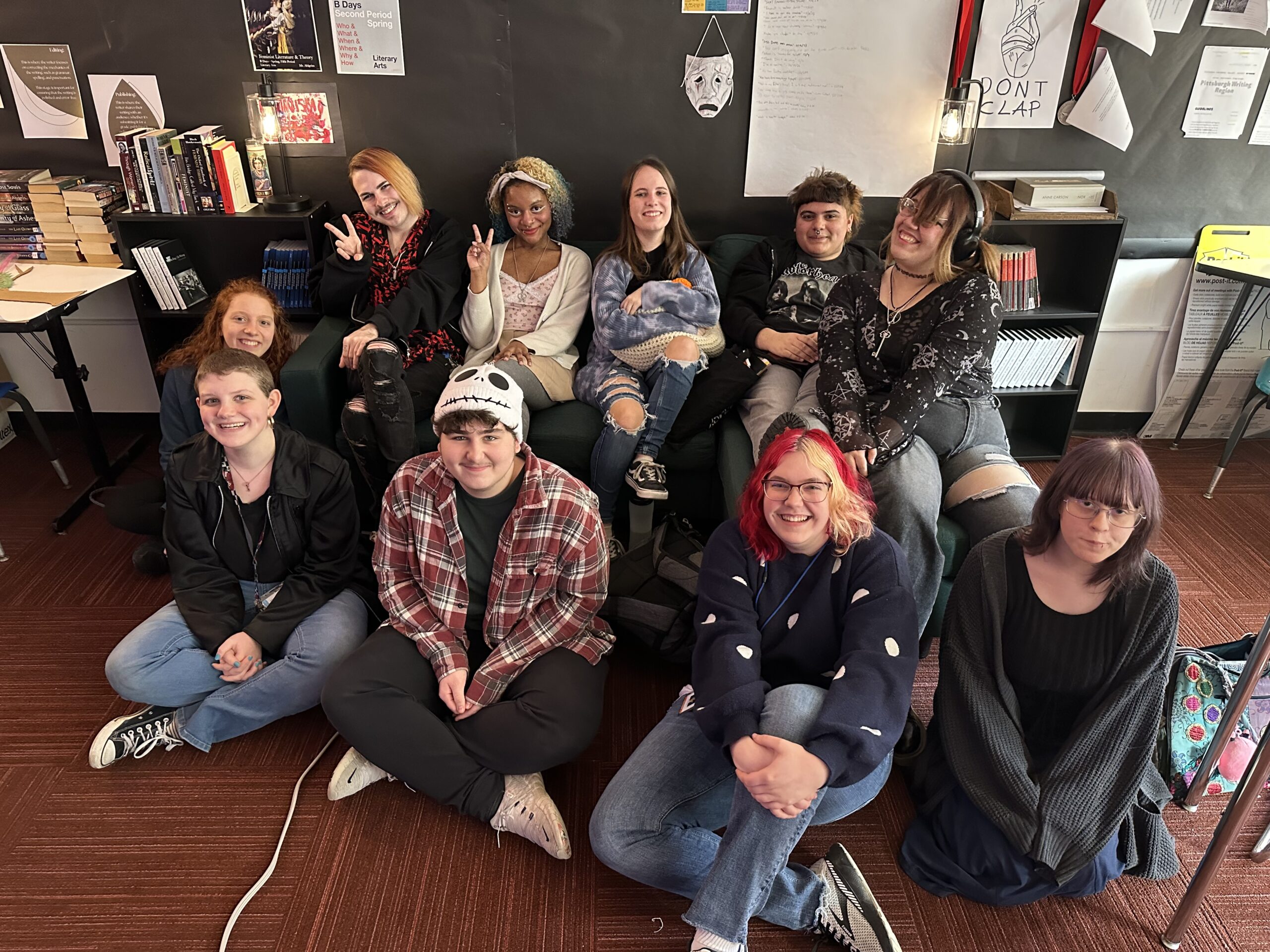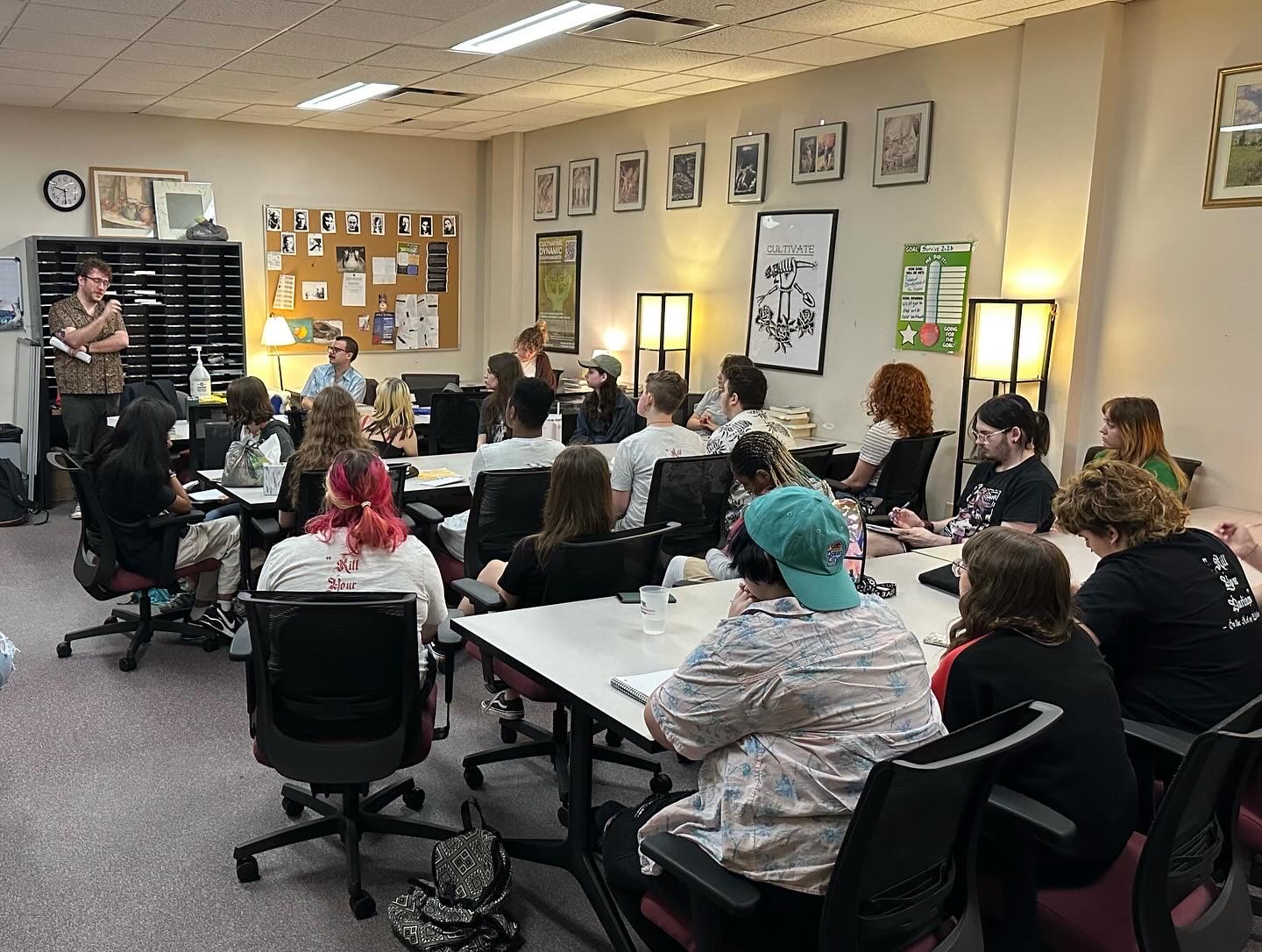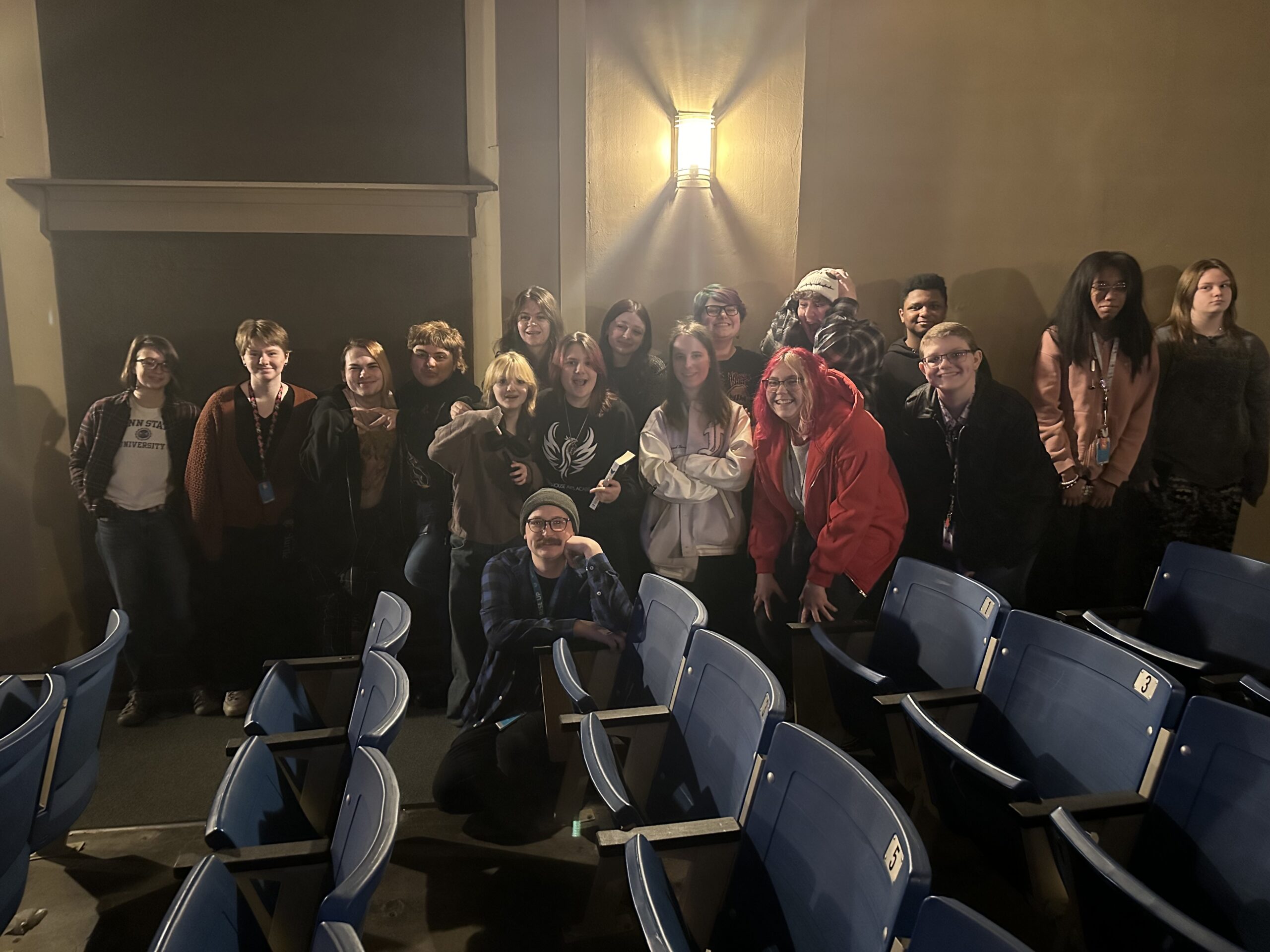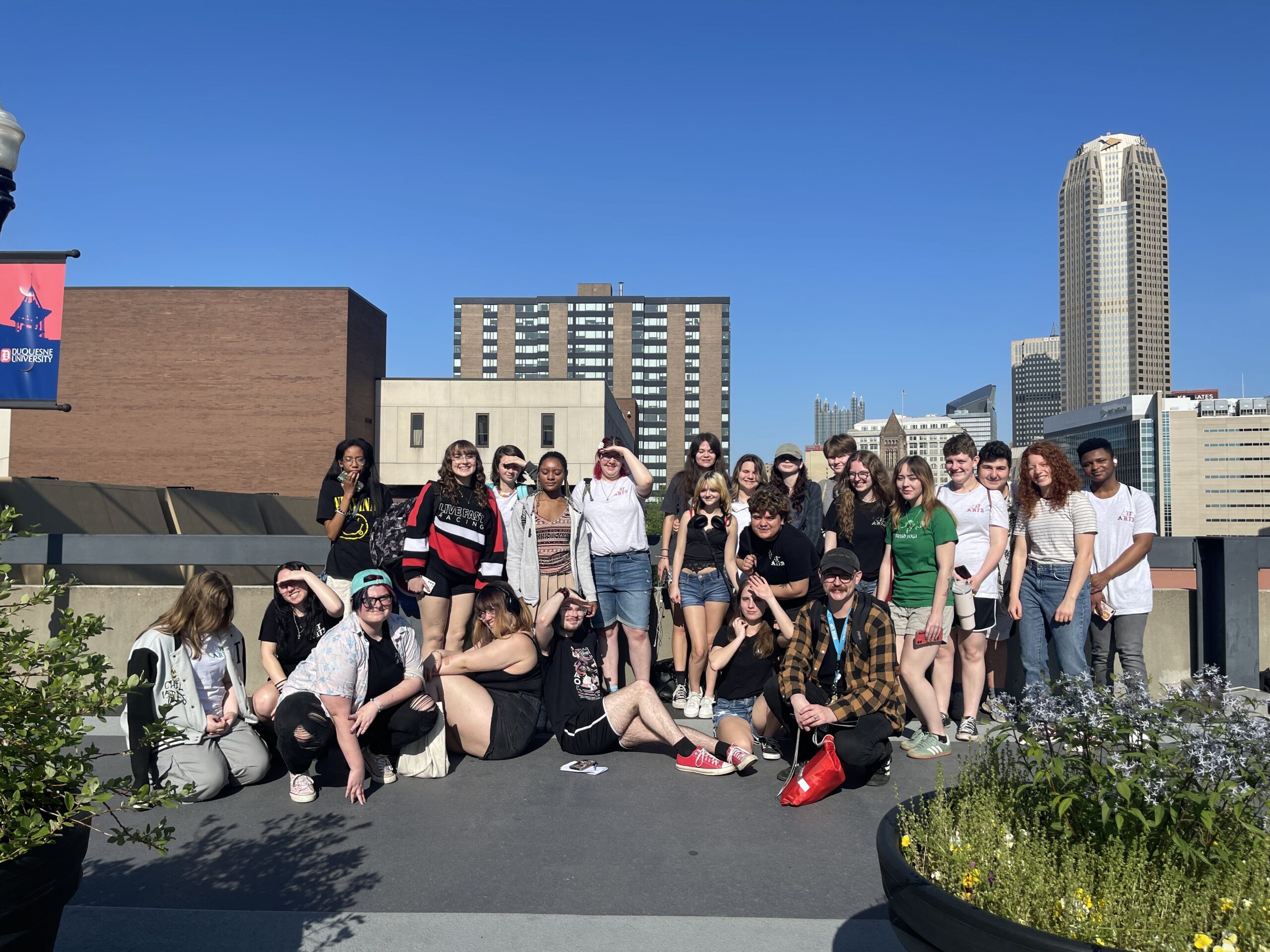Literary Arts
The Literary Arts program provides students with an exploratory experience in the world of literature and writing. Students have opportunities to publish their work in various magazines, read poetry in a community setting, and participate in building literacy for personal growth and community growth.
Westinghouse Arts Academy provides writers with the opportunity to immerse themselves in a variety of composition styles. Students study poetry, fiction, nonfiction, screenplay, playwriting, and more. Through workshops, readings, and publication opportunities, writers are supported in a dynamic learning environment, which not only helps them grow as writers, but also as professionals.
In the Literary Arts program, students are encouraged to specialize in a writing style of their choice (poetry, fiction, or nonfiction). This selection will provide students with the opportunity to customize their Literary Arts education as they proceed through their coursework.
In addition, students will not only gain a practical education on the nuances of writing, but also a theoretical background. Understanding the foundations of literary criticism and cultural studies provides students with a unique opportunity to challenge themselves to think critically and apply literary criticism to the world around them, and their own reading and writing experiences.
Publication opportunities and collaborative workshops are a regular structure in the Literary Arts program. Throughout the school year, students read and write as a team. These collaborative opportunities allow students to learn through peer to peer editing, and foster an important relationship with giving and receiving constructive criticism.
Graduating seniors leave the Literary Arts program with a compendium of their work, containing previously published pieces that can be shown to agents, used for college admissions, or form the basis of a professional portfolio. This artifact showcases the skills our writers develop throughout their time at Westinghouse.
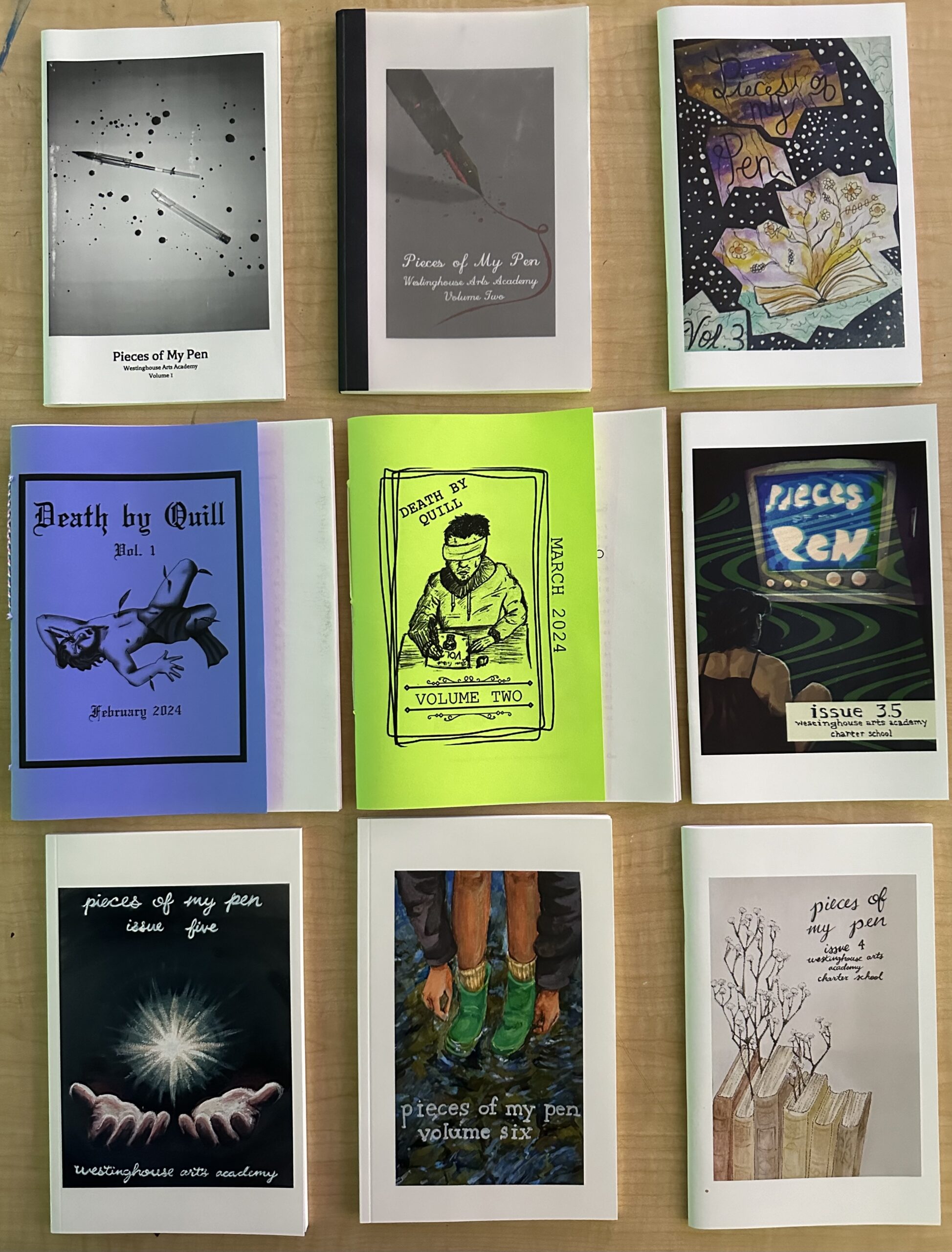
Learning Objectives
Learning objectives are valuable skills a student can learn by the time they graduate from Westinghouse Arts.
- Analyze the cultural and intellectual value of the humanities, the arts, and literature in everyday life.
- Create a compendium of written works that demonstrate mastery of multiple writing forms.
- Demonstrate the value of reading and literary interpretation when problem-solving in academic and professional environments.
- Participate in positive learning environments where differences of opinion are respected and valued.
Artistic Expectations
- To show a genuine desire to improve their writing skills, and an enthusiasm for reading.
- Show an interest in exploring all different forms of writing and literature.
To demonstrate the desire to be team-oriented, and not be deterred by constructive criticism. - To have reading and writing comprehension skills relative to the student’s grade level.
Required Courses
All Literary Arts students are required to take the following classes:
- Literary Arts Foundations I – II
- Literary Theory & Cultural Studies
- Literary Arts Senior Workshop
If your concentration is the poetry track you are required to take the following classes:
- Poetry Workshop
- Advanced Workshop
If your concentration is the fiction track you are required to take the following classes:
- Genre Studies
- Advanced Fiction Workshop
Electives Literary Arts may take:
- Feminist Literary Theory
- Journalism
Please view our Program of Studies here.
Portfolio Requirements
Prepare a collection of at least 5 pieces of your best-written work. You can submit your work as a link to an online portfolio, or as an attachment to an email. Writing portfolios typically include pieces from the following genres:
- Poems
- Short stories
- Play scripts or screenplays
- An excerpt from a longer work of fiction
- Essays, articles, or other works of non-fiction
Literary Arts Clubs & Organizations
- Quill and Scroll International Honors Society for High School Journalists
- Pieces of My Pen Literary Magazine
- Fall Coffee Shop (Poetry Reading)
- Spring Lemonade Stand (Poetry Reading)
Past Awards
Students have won individual awards via publication through Scholastic, Appelley, and other publications for young writers.
Journalism Profile Pieces
Students have written profile pices on the different majors at WAA. Click here to read about each creative and performing arts program.
Literary Arts Faculty
Select the faculty member’s name to view their professional background and contact information.
Adam Ahlgrim | aahlgrim@westinghousearts.org
Adam Ahlgrim |aahlgrim@westinghousearts.org | 412-646-1718 ext. 7203
Adam Ahlgrim received his BA in English and Education from Baldwin Wallace University, an MA in Literary and Cultural Studies from Carnegie Mellon University, and is a PhD Candidate in English at Duquesne University. At Duquesne, he has taught Freshman and Sophomore writing, literature, and film courses since 2019.
Aside from literature, one of Adam’s passions and academic focuses is literary theory and philosophy. He adores helping students navigate these notoriously difficult texts without giving up. Professionally, he assisted in writing footnotes for the third edition of The Norton Anthology of Theory and Criticism.
At home, Adam enjoys dabbling in various forms of printmaking and being weird with his young daughter.
You’ll most likely be able to find him working on his dissertation with bloodshot eyes in his classroom after school.

